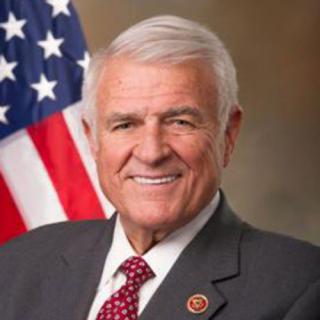Military Construction, Veterans Affairs, and Related Agencies

Chairman John Carter
HT-2 The Capitol
(202) 225-3047
Majority | Minority |
| John Carter – Chair | Debbie Wasserman Schultz – Ranking Member |
| John Rutherford | Sanford Bishop, Jr. |
| Michael Guest | Veronica Escobar |
| Ryan Zinke | Mike Levin |
| Stephanie Bice | Henry Cuellar |
| Scott Franklin | |
| Mark Alford – Vice Chair | |
| Nick LaLota |
Recent Activity
Thank you, Madam Chair, for yielding. First, I want to thank the chair and ranking member for their work on fiscal year 2023 appropriations for Military Construction and Veterans Affairs. I also want to acknowledge the committee staff who have worked on this bill.
Good afternoon. Thank you for recognizing me, Madam Chair.
I am pleased we are considering the FY23 Military Construction and Veterans Affairs Appropriations Bill today.
Even though I would have done some things differently, this is a good bill. My chair, Ms. Wasserman Schultz, deserves credit for her great hard work and I am happy to work with her.
WASHINGTON – Today, the full committee met to consider the fiscal year 2023 subcommittee spending levels, known as "302(b)" allocations. The appropriations bills for the subcommittees on Defense and Legislative Branch were also considered by the full committee.
Madam Chair, thank you for yielding.
As we sit here today, inflation is 8.6 percent above last year, the highest it's been in more than 40 years. Economists are saying American households should budget an extra $5,000 this year to cover rising prices – that's over $400 a month. Many families simply cannot afford this.
Prices of everyday goods have skyrocketed over the last year under the Biden Administration. For example:
Madam Chair, thank you for presenting the Military Construction and Veterans Affairs bill today. I appreciate the work that you and Ranking Member Carter have done this year to fund many projects important to our Members.
WASHINGTON – Today, the Defense Subcommittee; Legislative Branch Subcommittee; Military Construction and Veterans Affairs Subcommittee; and Agriculture, Rural Development, and Food and Drug Administration Subcommittee considered their appropriations bills for fiscal year 2023. The measures were reported out to the full committee with concerns raised by Republicans.
Mister Speaker, I rise today in support of H.R. 2471, a bill that will provide funding for the Federal Government through the end of this fiscal year.
While it has taken us far too long to get here, I am glad we were able to produce a bill that includes many funding priorities that I support.
Since last summer, I have made it clear that House Republicans wouldn't oppose appropriations bills unless they:
Enacted Full-Year Legislation
H.R. 2471 - Omnibus
Agriculture, Rural Development, and Food and Drug Administration
Defense
Commerce, Justice, and Science
Energy and Water Development
Thank you, Madam Speaker.
I rise today in strong opposition to H.R. 4502, a package of seven fiscal year 2022 appropriations bills that will be considered by the House this week.
I wish the circumstances were different and I could support this important piece of legislation that funds critical programs.
Unfortunately, after months of committee hearings and markups, this year's bills have too many fatal flaws.
First, there is no agreement between Republicans and Democrats on the topline spending level for appropriations.
